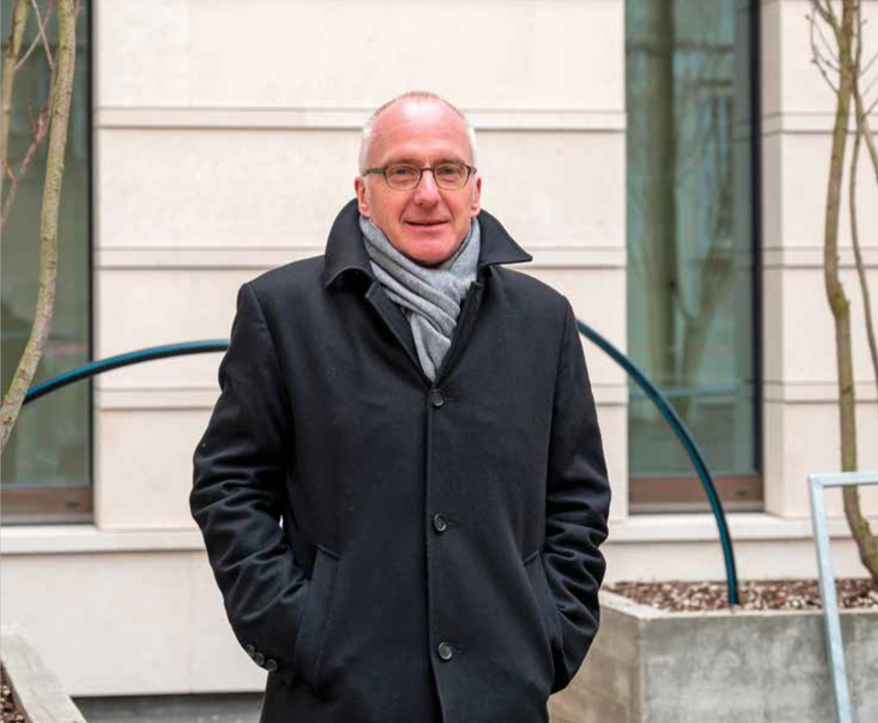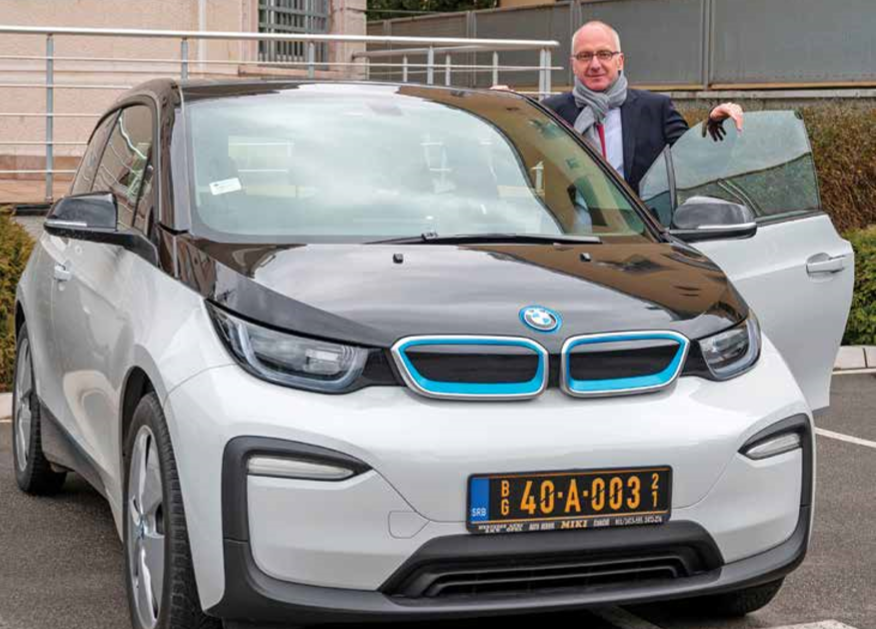Political and economic relations between Germany and Serbia are steadily progressing. Germany wholeheartedly supports Serbia’s strategic goal to become a member state of the EU and develop a thriving economy. By signing a bilateral agreement, cultural and scientific exchange will soon be elevated to the next level

EU accession process and economic, cultural and scientific exchange are in the focus of the bilateral relations between Germany and Serbia. Furthermore, in the international arena, the two countries successfully cooperate in dealing with migration on the so-called “Balkans route”. Among the issues which should be further addressed are fair and transparent election process, media freedom and continuous implementation of measures for sustainable and reliable economic development.
“Political ties between Germany and Serbia are strong, and Germany wholeheartedly supports Serbia’s strategic goal to become a member state of the EU,“ says H.E. Thomas Schieb, German Ambassador to Serbia in an interview for D&C. “Serbia should become a member of the EU family as soon as possible, which does, however, depend on Serbia’s pace of reform, especially in the rule of law”, adds our interlocutor, underlining that Germany strongly supports the European path of Serbia. “Let me add that EU-enlargement will remain a very important topic for our presidency of the European Council in the second semester 2020,” says the ambassador.
Our interlocutor further notes that the bilateral relations between Germany and Serbia are deep-rooted and very broad across all fields, and offers a quick snapshot into history, and anniversaries which are before us.
“Our cultural relations have a long tradition dating back to the friendship between Vuk Karadzic and Johann Wolfgang von Goethe and even deeper into the past. This year, we are celebrating the 50th anniversary of the Goethe Institute Belgrade”, says the German ambassador to Serbia. Economic relations are particularly strong with the trade exchange reaching over 5 billion euros last year, a result to which the German companies operating in Serbia are strongly contributing by setting their production in Serbia. “Our economic relations are developing at an ever faster pace; more and more German companies invest in Serbia, creating jobs for more than 62,000 people so far”, concludes our interviewee. After an overview of the major features of the German Serbian bilateral relations, we went to ask our interlocutor about the most important issues relevant for this particular moment in time. The topics covered were related to forthcoming Serbian elections, current status of the EU enlargement process, major themes of the contemporary issues related to cooperation between Germany and Serbia, status of Serbian reforms and the activities of the German embassy in Serbia.
What do you think of the attempts to establish a dialogue between the government and the opposition aimed at creating fair electoral conditions?
I welcome the measures agreed within the inter-party dialogue moderated by the European Parliament aiming at creating the conditions for free and fair elections. Now implementation of what was agreed in the dialogue is of key importance, particularly in the media sector. We do think that it is important for the opposition to participate in the elections – and this is why it is so important that the conditions for free and fair elections are safeguarded and a level playing field is guaranteed.
Considering the overall situation, what can the EU offer countries like Serbia and what should our country’s motives be when it comes to continuing with the European integration process?
First of all, the EU does offer a lot already. Visa free travel to Schengen area for holders of Serbian passports or EU pre-accession assistance worth 1.5 billion EUR (2014-2020) are just two examples. It is important to note that EU membership comes with privileges and obligations. For instance, the EU is stronger together in the arena of foreign policy than any of its member states alone. That requires all member states to make compromises in order to agree on joint positions and to advocate them loyally. Therefore, candidate countries need to align their foreign policy gradually with this EU acquis.

A small contribution to cleaner air – Embassy’s BMW i3 for going around the town
What, apart from the European integration, are the most important priorities in bilateral relations between Serbia and Germany?
We want to further boost our economic exchange, and also help increase cooperation of the German states – like Baden Württemberg, Bavaria, Hesse or Lower Saxony – with Serbia. Cultural and scientific exchange is another important field and we hope that we can soon conclude negotiations for a bilateral agreement that will elevate our cooperation to the next level. We are grateful for Serbia’s constructive role in managing migration on the so-called “Balkans route” and will continue to support government efforts to meet the basic needs of refugees and migrants and to integrate recognized refugees.
What is your assessment of the overall economic reforms in Serbia and what are your expectations in this matter?
I share the assessments of the World Bank, with IMF and other international institutions: Serbia undertook major macro-economic reforms and finds itself today in a stable economic situation which is very good. We expect Serbia to keep track on its reform path and to keep pace. We are ready to assist Serbia in its reform effort.
In which areas should Serbia exert more effort towards building a functional market economy and what are the experiences of German investors in Serbia regarding this?
Challenges for sustainable and reliable economic development in Serbia remain to be addressed. According to the last annual survey of the Serbian-German Chamber of Commerce among its approximately 340 member companies corruption needs to be fought, transparency in public procurement needs to be improved. Companies wish for reliable court procedures in due time and the implementation of existing laws as well. Serbia’s building of a functional market economy will also need to address privatization and liberalization questions.
When do you expect the Embassy to move into a new building?
There is a proverb saying that at sea and in court you are in God’s hands. Which means anything can happen. It goes for big construction projects too. However, I am very confident that we’ll move in this year.
What will be the Embassy’s activities this year?
We will continue to work with all our partners across the board to further support Serbia’s way into the EU. We will see festivities marking 20 years of development cooperation, the 30th anniversary of the German reunification, the 50th anniversary of Goethe Institute, but also commemorate the 75th anniversary of the end of the Second World War. We also want to do more culture-related work outside Belgrade. There will likewise be many more activities by Goethe, DAAD, GIZ and our political foundations. We won’t get bored this year, that’s for sure.